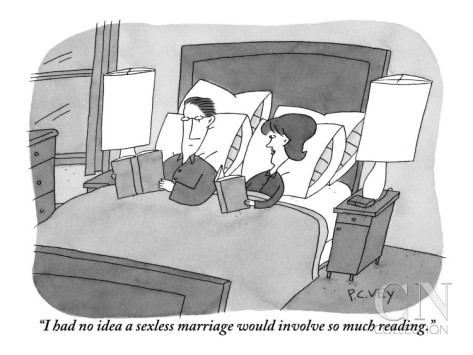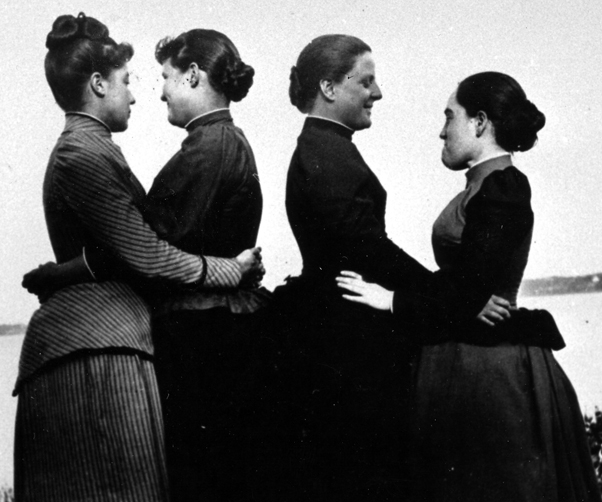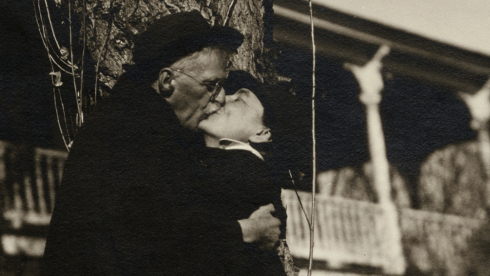When a woman tells me that her sexual desire has decreased I want to know more. What’s behind that statement? What’s going on in her life, or her body that causes her to feel little interest in sex?
I don’t believe you wake up one day to find that sexual desire has suddenly disappeared. It happens gradually.

Wondering why sexual desire has disappeared
Some of the factors that can contribute to a decline in sexual desire in older women:
- Menopause: hormonal changes can cause changes in vaginal tissue, a decrease in natural lubrication; accompanying emotional changes can create stress or discomfort, sleep problems, painful intercourse and more.
- It’s possible to care about a partner and simultaneously feel no sexual attraction. Maybe that person has changed in ways that are challenging for you. Or you no longer love them. In a rocky relationship sex is often one of the first things to suffer.

- Health issues, yours or theirs. Illness, medication side effects, or the daily tasks of caregiving decrease our ability to feel sexual desire.
- Life stressors. When we’re anxious, overworked, stressed, tired, and in conflict sex is often the last thing we want.
- You’re single, whether by divorce, the death of a partner, and not ready to have sex with a new person, or you’re single and don’t have any dating options.

When you feel disconnected from your partner, desire drops off
So, how do you rekindle sexual desire as an older woman?
For starters, ask yourself: What is it that I don’t like about having sex with my current partner? What do I need to say and ask for? How can I be sexual without a partner?
As a single woman you can give yourself pleasure—using fingers and, or, toys. There’s no reason to assume that sex is only for couples.
Actually it’s important from a sexual health perspective to build desire and experience the physical benefits of arousal. During arousal, blood flows to vaginal tissues and helps keep them supple and lubricated.
If the issue is your partner, you need to talk to him or her. Talk about what you want, what you feel is missing and solicit their assistance. And yes, it’s going to be hard and possibly awkward.
Try playing together outside of the bedroom. Flirt. Snuggle. Hold hands. Do fun activities that strengthen your connection. When sexual desire begins to disappear we tend to distance ourselves from our lover, which only reinforces the separation. The goal is build on what you have and move slowly from there to more explicitly sexual activities.

Touch as an entry into rekindling desire
As Esther Perel says, “Committed sex is premeditated sex.” When you plan for sexual intimacy, it builds desire and indicates your willingness, or eagerness, to a partner.
In my book, Inviting Desire, in addition to a chapter on being single and sexual, there is a chapter on asking for what you want, with exercises to help you express your wants and needs.
Don’t expect to feel a surge of sexual desire, if it’s been a while.

Start slowly, with touching and cuddling and kissing. Feel the sensations. Share, “I like it when you do that” and “would you touch me (here)” as encouragement.
In choosing to create sexual desire you are giving yourself permission. And whether you’re single, lesbian, heterosexual or something else, you can have the kind of sex you want. It starts with you, with choice, conversation, awareness, and a desire to embrace your sexuality.

Late Life Intimacy: Alfred Stieglitz and Georgia O’Keeffe
 Walker Thornton is a sex educator and author, specializing in midlife sexuality. As a public speaker she combines positive aging messages with sexuality by helping women be bold in what they seek in their lives. Links: www.walkerthornton.com and https://www.facebook.com/WalkerJThornton/
Walker Thornton is a sex educator and author, specializing in midlife sexuality. As a public speaker she combines positive aging messages with sexuality by helping women be bold in what they seek in their lives. Links: www.walkerthornton.com and https://www.facebook.com/WalkerJThornton/